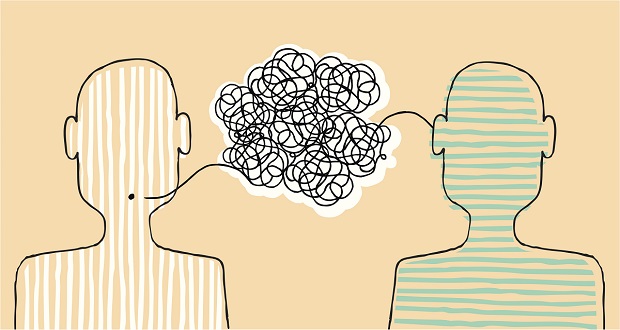The other night I was on IG and came across a story from a young Liberian lady, Miss. Deddeh (name changed for privacy). She was commenting on People of Color (POC) who have, in her view, likely adapted “white social norms” that “upholds anti-Blackness”. Her post was not unusual, it falls within a similar sub-category as many other socially conscious anti-establishment posts that come across my IG feed regularly. My usual reaction is to ignore, preferring to enjoy my daily dose of idle unproductive leisure without interruption. In this instance, it felt necessary to respond to this post. The argument its author made is one I recently observed other black social activists making, suggesting that most Black folks assimilating in dominant white cultures were “acting white” and therefore anti-black or self-hating. I find this line of argument particularly naive, dangerous, and limiting for Black folks who live and work in majority-white environments. The argument presents a limited understanding of social norms, generalizes about “Whiteness” -whatever it might be, gives it more power than it deserves, and proposes a definition of Blackness that excludes many Black folks not interested in filtering their experiences through a limiting “Whiteness” or “Blackness” dichotomy.
Deddeh’s entire post is as follow:
“It is important to understand that being a non-black POC doesn’t absolve you from being prejudiced. POC can still hold views that are deeply anti-black. Adopting the viewpoint that POC cannot hold anti-black views undermines efforts to curtail oppression and prevent communities of color from looking inwardly to understand the role they’ve played in continuing anti-black bias.
Those who live and work in majority-white environments have likely adopted several practices to assimilate with the dominant culture. These survival tactics include, but are not limited to, changing one’s hair to mimic more euro-centric hairstyles, code-switching, and even “acting white”. While those assimilation techniques were once deemed necessary for surviving and thriving in white spaces, the argument could be made that adhering to white social norms further upholds anti-Blackness.”
The first paragraph makes an important point; I mostly agree with Miss. Deddeh’s conclusion. Individuals or groups of people are capable of acting against their own interests irrespective of their racial classification. Irrespective of racial classifications, individuals or groups with incorrect or insufficient information or reasoning can make decisions that make them worse off in aggregate. Karen Pyke has illustrated this phenomenon in color communities through her work on Internalized racism and prejudices.
In the second paragraph Miss. Deddeh argues that: social norms or ways of living as observed in “white spaces” are antithetical to Blackness and POCs observing, practicing, or adhering to such “white social norms” are “acting white” and therefore against “Blackness”. This argument is wrong for many reasons and my objection to it is laid out as follows:
First, the argument shows a limited understanding of social norms and how norms work across groups, societies, and cultures. Social norms are an important encouraging and constraining mechanism in groups that seek to create desirable outcomes in welfare maximization or eliminating externalities. This conclusion has been upheld empirically in other disciplines, recently in the journal Science, on social norms as solutions for climate change. Norms are not inherent to any group; they usually arise around group objectives. Miss. Deddeh’s argument disregards why people or groups adopt specific norms and concludes that because these norms were adopted in majority-white environments they must be anti-Black. Not all norms are productive, some do not achieve the outcomes desired or might achieve a desirable outcome but have deleterious unintended consequences. The value of an idea, action, or specific social norm should be assessed by its goodness. Are the norms governing people’s behaviors in accordance with the desirable group objective? If the answer is yes, the Blackness or Whiteness distinction adds no value in evaluating the efficacy.
Second, this argument presupposes “Whiteness” and “Blackness” as mutually exclusive monoliths. Thus, such informal rules that govern behavior, i.e. norms, in white spaces should be exclusive to white spaces and Black folks using these “white social norms” are upholding anti-Blackness. This view disregards the experiences of black and white people from other cultures. It takes a fundamental human practice as social norms formation and segregates it into racial categories, excluding Black folks from practicing norms labeled “white”. This kind of segregation confines Black folks to those limited elements of the human experience that have not been labeled as, claimed by, or belonging to Whiteness. Implicit in this argument is the restriction that, Black folks must not do anything, say anything or act in any way that is reminiscent of Whiteness. People in Black and White communities are similar in their humanity than they are different. Given identical group objectives and resources, it is not unreasonable for people in both communities to adapt to the same social norms. Restricting people in black communities from adopting a specific norm that might maximize their welfare because the norm was first developed in or practiced by a white community seems unreasonable to me. Everyone should enjoy to the fullest the whole panorama of the human experience. What good is this freedom we and our forefathers sacrificed for if we are not to enjoy the benefits of freedom that our white brethren have long reserved for themself?
Third, it is detrimental to Black diversity to assume one static definition of what Blackness is. In this argument, Blackness might as well be defined as anti-Whiteness and anybody not adhering to this definition of Blackness is “code-switching” or “acting white” or at worse adopting survival tactics that further upholds anti-Blackness. This is an anti-cultural integration argument that when removed from this “Whiteness” and “Blackness” framing and applied to any other context where different groups of people are living together you quickly notice its disharmonious effects. Are Blacks and Whites supposed to live together in highly integrated societies without cultural exchanges? If we can, for a moment, accept Miss. Deddeh’s assumption that norms are static to racial groups, and agree that certain social norms are exclusively White or Black. Under this assumption, will it be wrong or anti-Blackness for Black folks to adopt White norms if the norms are beneficial to their desired objectives? For me, the answer is “No.” Cultural exchange of ideas and practices should be welcomed if the exchange aids in achieving the desired objective of the groups involved. Will Black folks adopting these norms be anti-Blackness, code-switching, or acting White? For me, the answer is still “No.” Who gets to define what appropriate Black actions are? Or whether a Black person is “acting White”? We will do well by not placing unnecessary constraints on our Black brothers and sisters, judging them for their actions if they have good or bad consequences and not by their proximity to “Whiteness”, whatever Whiteness might be.
My intention here is not to defend “Whiteness” or cast aspersions against people engaging in commentary about Whiteness or Blackness. I also do not want to single out Miss. Deddeh either; her post happens to be the most recent post I saw following this line of argument, necessitating this reaction. I must admit, my understanding of racial studies is elementary at best, but the idea of limiting pro-Blackness to those experiences not observed in white spaces or defining pro-Blackness as anti-Whiteness is dangerous and has very little usefulness. People with good intentions are capable of acting against their own interest, POC can hold views that are deeply anti-black and adopt norms that are antithetical to their welfare. But determining if a view or norm is racially biased or anti-Blackness is not as simple as observing how closely it is connected to whiteness or if it is practiced in white communities. The value of an idea, action, or specific social norm should be assessed by its goodness. Does it support or help achieve the stated goal? Following Miss. Deddeh social media page, she seems to be going places, and if my intuition is right, she might someday be an important decision-maker in a predominantly black society. This is my attempt to reach Miss. Deddeh and others with influence in our communities making similar arguments, I’m hoping you evaluate these arguments carefully, if not to change your mind but to be more considerate in your rhetoric about Blackness. This rhetoric has the potential to do more harm than you might anticipate. An older Aunty once said to me “we Black folks, we do not have to learn how to be Black, we are born Black, we live Black and we are reminded every day that we are Black.” I always recall her words when I observe Black folks questioning or invalidating the blackness of other Black folks because they seem to be “acting white”. Imagine being the black boy or girl on the receiving end of this accusation. It engenders a sense of otherness and lack of belonging in a person, it can be destructive to your self-esteem and sense of identity. Research has shown that this phenomenon can have negative effects on minority students’ performances in school. Remember, we can be pro-Black without invalidating the blackness of others. We should judge people on the consequences of their actions, not by their “Blackness” or proximity to “Whiteness”. Updating our rhetoric will be a great start.
Authored by Jeff Johnson
Featured Pictured by the Inclusion Solution

